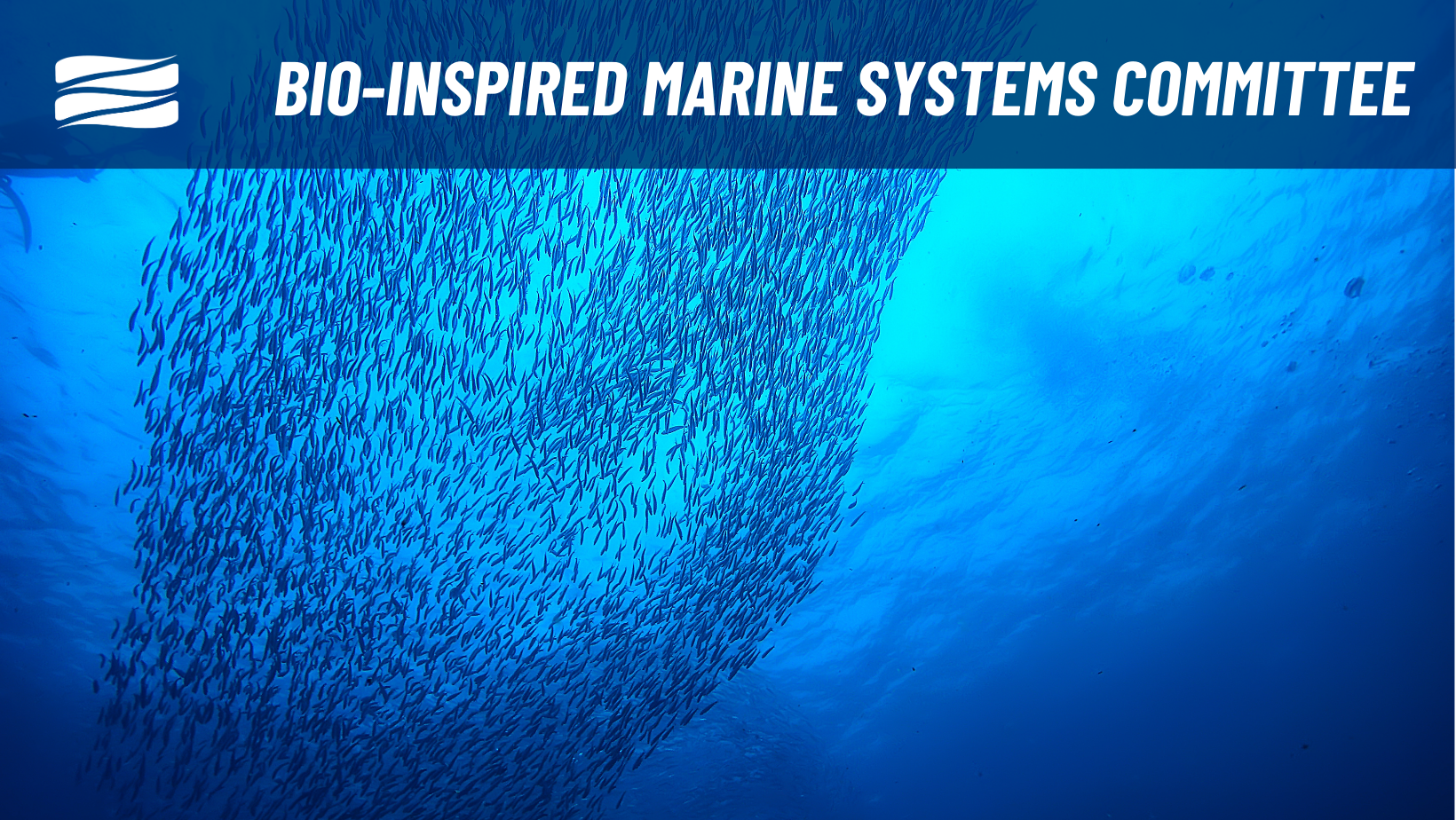
Bio-Inspired Marine Systems
The mission of the Bio-Inspired Marine Systems committee is to promote research and use of marine technologies which mirror the motion patterns of organisms.
Leadership
Co-Chairs: Jason Geder and William (Bill) Sandberg
Past Event: MTS Bio-Inspired Marine Systems Committee Seminar: Sensing and Hydrodynamic Performance of Underwater Swimmers
A one-day conference of the MTS Bio-Inspired Marine Systems Committee was held on Sept. 9, 2022 at the George Mason University Potomac Science Center, sponsored by the Marine Technology Society and the George Mason University Department of Physics and Astronomy.
The meeting brought together experimental, theoretical, and computational scientists from physics, ocean engineering, materials science, biology, biomechanics, fluid mechanics, mechanical engineering, robotics, computer science and electrical engineering, underwater acoustics, AI, and human-robot interaction communities. In-person and online participants represented George Mason, MIT, Carnegie Mellon, West Chester, Duke NJIT, Rutgers, Drexel, USC, Florida and Florida Atlantic universities, the Naval Undersea Warfare Center Newport Division, the Naval Research Laboratory, the National Highway Transportation Safety Agency, the Boston Engineering Corporation, and Blue Wave Robotics. Several GMU doctoral candidates working on robotic vehicles also attended and participated in the meeting.
Ongoing research and current findings were presented on topics including:
- Tuna-inspired forward-deployable fins for improved UUV maneuverability.
- MRI data and structural analysis of fish muscle to inform soft deformable UUV and control surface designs.
- Advances in novel materials for artificial muscle actuators for untethered mobility of soft robotics.
- Structure and fluid dynamics of seal whiskers for wake tracking.
- Fluid dynamics of living and bio-inspired robotic turtles, sea lions, and rays
- Shark skin and whale fin geometries and structures for flow modification enabling drag, wake, and noise reduction.
- Design and testing of device for biofouling removal enabling a decrease in fuel consumption and prevention of invasive species transport.
- Performance and lessons learned during execution of at-sea missions by Boston Engineering's Ghost Swimmer and Bio Swimmer UUVs.
- Lessons learned on human-robot interactions and the effects of risk-taking by software designers on the performance of autonomous driving cars and trucks.
Beyond the research presentations, an introduction to a STEM kit for understanding principles of bioinspired propulsion and control was given by a George Mason University team. Hands-on demonstration of this kit, including three lighter-than-air, fish-inspired vehicles, was given. For high school students who have no access to water or pools, these kits serve as an introduction to underwater robotics and bio-inspired systems.
The meeting concluded with a discussion of future plans for a special meeting, possibly a Tech Surge, on Soft Robotics for Bio-Inspired Undersea Vehicles.
|